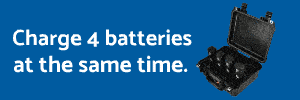The mental / legal gymnastics that go on over and over regarding parsing the interpretations of part 107 are probably more effort than actually getting the 107. LOL. 
In my own personal opinion probably worth less than the proverbial $.02, I’d say this: if you fly around recreationally and happen to get a killer pic that people want to buy, then sell without worry. If you think you will sell enough photos to make this worth debating, then get the 107. That’s what I did. And I learned a few things along the way. But I still only sold a couple pics and did only a few real estate gigs.
In my own personal opinion probably worth less than the proverbial $.02, I’d say this: if you fly around recreationally and happen to get a killer pic that people want to buy, then sell without worry. If you think you will sell enough photos to make this worth debating, then get the 107. That’s what I did. And I learned a few things along the way. But I still only sold a couple pics and did only a few real estate gigs.








